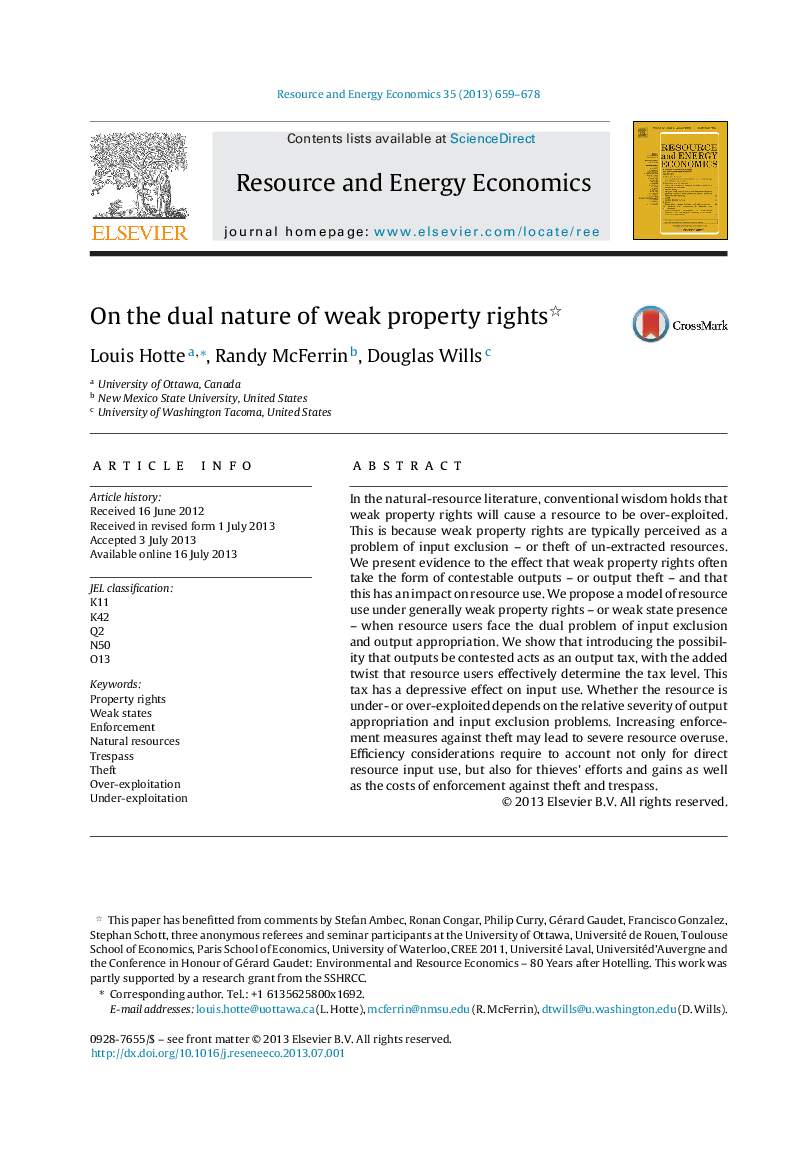| Article ID | Journal | Published Year | Pages | File Type |
|---|---|---|---|---|
| 985688 | Resource and Energy Economics | 2013 | 20 Pages |
•We model resource use under weak governance where property rights are not respected generally.•Enforcements against input exclusion (trespassing) and output appropriation (theft) are considered.•We show that those enforcement problems lead to opposite predictions for the state of the resource.•We conclude that weak governance can cause either over- or under-exploitation.•Fixing the appropriation problem only may have adverse consequences on the state of the resource.
In the natural-resource literature, conventional wisdom holds that weak property rights will cause a resource to be over-exploited. This is because weak property rights are typically perceived as a problem of input exclusion – or theft of un-extracted resources. We present evidence to the effect that weak property rights often take the form of contestable outputs – or output theft – and that this has an impact on resource use. We propose a model of resource use under generally weak property rights – or weak state presence – when resource users face the dual problem of input exclusion and output appropriation. We show that introducing the possibility that outputs be contested acts as an output tax, with the added twist that resource users effectively determine the tax level. This tax has a depressive effect on input use. Whether the resource is under- or over-exploited depends on the relative severity of output appropriation and input exclusion problems. Increasing enforcement measures against theft may lead to severe resource overuse. Efficiency considerations require to account not only for direct resource input use, but also for thieves’ efforts and gains as well as the costs of enforcement against theft and trespass.
